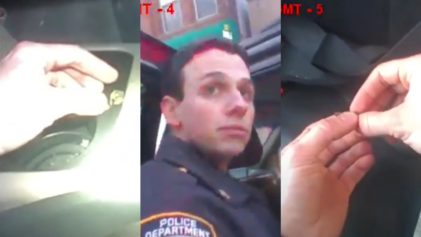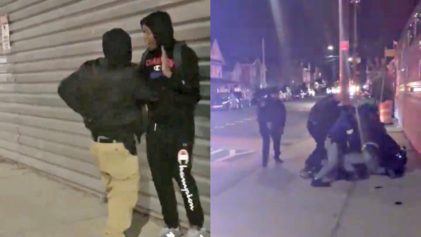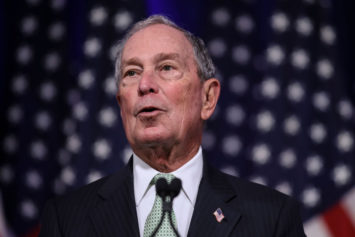The harsh glare that has been shining on the New York Police Department because of its controversial stop-and-frisk policy and also its recently revealed surveillance of New York City Muslims compelled the New York City Council to act early this morning, passing two measures that constrain police powers—in direct defiance of Mayor Michael Bloomberg, who has been an ardent defender of stop-and-frisk.
At a raucous, emotional meeting that lasted until the wee hours of the morning, the council passed a measure to create an independent inspector general to monitor the New York Police Department (NYPD) over a seven-year period and make recommendations on how it could be improved. Law enforcement agencies such as the FBI and the Los Angeles Police Department have inspectors general.
The council also passed a measure to expand the definition of racial profiling and allows people who believe they have been profiled to sue police in state court. Since Bloomberg had threatened to veto the bills, each bill passed the 51-member council with at least 34 votes, giving them the two-thirds majority necessary to override a mayoral veto.
The inspector general bill passed 40-11 and the racial profiling bill 34-17. When the 34th vote was counted after 2 a.m., the crowd of more than 100 people burst into cheers, according to Reuters.
The operations of the NYPD have received severe scrutiny in recent years. The stop-and-frisk policy has landed the department in court and is the subject of a federal lawsuit brought by four men who claim they were stopped solely because of their race, along with millions of others stopped in the last decade. A federal judge is currently deliberating the case and is expected to hand down a decision during the summer determining whether to order reforms to the policy and establish the court’s own monitoring. City attorneys have argued all along that the stops were lawful and not based on race alone.
The NYPD has conducted about 5 million stop and frisks in the last decade, with more than 80 percent of those stopped being black or Hispanic and arrests resulting less than 15 percent of the time.
In addition, a report by the Associated Press showed that the department has been spying on Muslims, including infiltrating Muslim student groups and putting informants in mosques.
“I want to speak from my heart. I implore you, if you’ve never been a young black or Latino, male or female, in New York City, to please listen to us,” said Jumaane Williams, a council member from Brooklyn who sponsored the bill.
The Washington Post has also reported that four Central Intelligence Agency officers were embedded with the NYPD in the decade after September 11, 2001, including one who helped conduct surveillance operations inside the United States. But the CIA inspector general found the collaboration was replete with “irregular personnel practice” and lacked adequate control by agency supervisors, according to the Post.
“We’re proud of our relationship with CIA and its training expertise,” police spokesman Paul Browne said in response to the report, giving the program credit for helping New York avoid any new attacks since 2001.
Bloomberg has said the council bills could tie the department up in lawsuits and complaints, inject courts and an inspector general into tactical decisions and make “proactive policing by police officers extinct in our city.”
City Council Speaker Christine Quinn, a Democratic mayoral candidate and Bloomberg ally, broke with the mayor and supported the inspector general. But Quinn voted against the bill on racial profiling.
With the second bill, plaintiffs wouldn’t have to prove that a police officer intended to discriminate—only that a practice such as stop and frisk affects some groups disproportionately. The suits couldn’t seek money, just court orders to change police practices.


